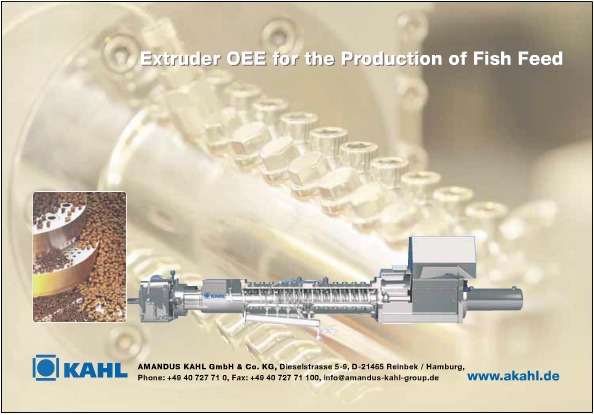The Shrimp Aquaculture Dialogue has handed over the shrimp standard to the Aquaculture Stewardship Council (ASC), following seven years of development. Now the standard is finalised, this marks a major milestone for the ASC and a step towards promoting more responsible shrimp aquaculture.
The Dialogue members have created a standard that sets out a series of robust requirements to address the key impacts of the industry. Over the years ahead, as farms meet these requirements they will be reducing these impacts helping to move the sector towards sustainability.
Chris Ninnes, ASC's CEO, said: "I have to applaud the individuals on the Dialogue – around 400 people worked tirelessly, including NGOs, industry, scientists and others. It’s no mean feat to bring such varied views and expertise together to create this important document. I’m anticipating early interest in ASC certification from shrimp farms and look forward to them entering the programme and committing to significant improvement in the sustainability of their operations.”
The majority of shrimp aquaculture takes place in China, followed by Thailand, Indonesia, India, Vietnam, Brazil, Ecuador and Bangladesh. Many large and small scale shrimp farms in Central America, Southeast Asia and elsewhere are working towards producing shrimp responsibly.
“These standards are a breakthrough for sustainable shrimp production,” said Jason Clay, WWF’s senior vice president of market transformation. “Shrimp is the most valuable traded marine product in the world today, with the farmed shrimp industry growing at a rate of 10 per cent annually. These standards will help ensure this growth occurs sustainably and in a way that benefits producers, consumers and the environment. We’re now one big step closer to sustainable shrimp making its way to seafood counters around the world.”
Shrimp is the seventh standard to join ASC’s global programme for responsible aquaculture. It follows the successful introduction of standards for farmed tilapia, pangasius, bivalves (clams, mussels, oysters, scallops), abalone, freshwater trout and salmon.
Minimising the environmental and social footprint of shrimp farmingOn average, after being farmed for three to six months, shrimp is harvested to be sold, so two to three harvests per year are possible. However, shrimp farming can have quite considerable unintended negative impacts, therefore, minimising the associated environmental and social footprint is crucial.
The stakeholders involved in the Shrimp Aquaculture Dialogue produced a global standard that focusses on addressing seven key areas of adverse impact. Detailed auditing guidelines for onsite assessments are also available to guide certifiers and farms through the audit.
“It is very rewarding to watch how many people with broad and diverse backgrounds associated with shrimp farming came together over difficult issues and developed measurable standards that address reducing impacts in a real and relevant manner,” said Jose Villalon, one of the 14 members of the Global Steering Committee which was responsible for guiding the Shrimp Aquaculture Dialogue over the past seven years.

Through ASC certification shrimp farms aim to measurably reduce adverse impacts on the environment and local communities by preserving wetlands and mangroves; addressing the transfer of viruses and reducing disease; bringing cleaner water and ensuring the sustainable use of water; ensuring the responsible use of feed; and addressing biodiversity issues.
In addition, the standard defines guidelines covering the rights of employees and local communities, ensuring ASC certified shrimp is produced in a responsible social setting.
Certifier trainingBefore certifiers can conduct farm audits their staff must be trained on how to carry out assessments against the standard. Their companies must also successfully complete the third party accreditation process administered through
Accreditation Services International.The first ASC certifier training for shrimp took place in Bangkok, Thailand, 2-4 December. Farms can now contract auditors and enter assessment. It is expected that the first farm audits will take place from May 2014 and the first ASC certified shrimp products are expected to be available around the end of 2014.
IDH and WWF supportASC is actively working with its cofounders, WWF and the Sustainable Trade Initiative (IDH), to help drive improvements in shrimp aquaculture.
ASC works closely with WWF country offices as they assist in engaging the local aquaculture industry. WWF also continues to bring about change through its global Aquaculture Improvement Projects (AIPs), which assist fish farmers to comply with ASC’s standards and link responsible producers with new markets.
IDH has established a Farmers in Transition (FIT) fund to stimulate and support the production of responsibly farmed shrimp. The programme partners with retail, food service and supply chain companies to encourage producers to improve their farming practice and actively engages governments, industry and other stakeholders in the countries of production.
Shrimp farmers who would like to achieve ASC certification can apply for FIT co-funding from IDH.
For more information please contact Flavio Corsin
corsin@idhsustainabletrade.comASC collaboration with other certification programmesASC is not alone in promoting improved performance from shrimp farmers. ASC is working with the Global Aquaculture Alliance (GAA) and GLOBALG.A.P. to make certification more accessible for farmers. While these programmes cover different content (e.g. food safety, animal welfare etc.) and levels of environmental and social requirements, there are overlaps. The three organisations recognise that efficiencies can be created by working together to identify overlaps and by developing mechanisms for auditors to conduct a single audit against more than one programme. A key driver for this initiative is the ability to benefit more farmers and reduce environmental and social impacts more quickly.

















